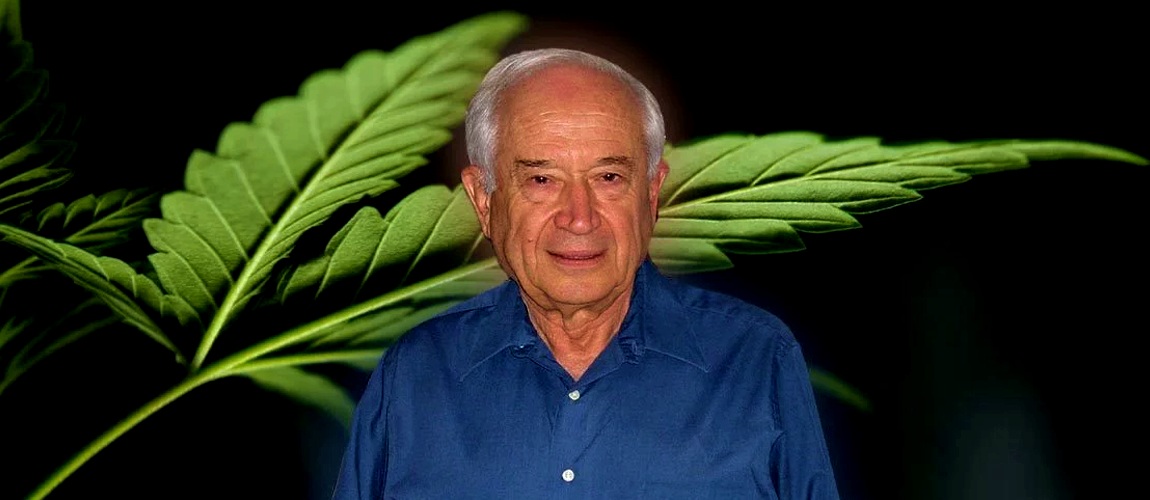Unraveling Nature's Enigma: The Legacy of Professor Raphael Mechoulam and the Renaissance of Cannabis Research

Unraveling Nature's Enigma: The Legacy of Professor Raphael Mechoulam and the Renaissance of Cannabis Research
Throughout my lifetime, I have been continuously drawn to the profound enigma of cannabis. Its use, spanning millennia, has been woven into the very fabric of diverse civilizations, yet, its chemical intricacies remained largely obscured. This ignited my academic curiosity in the early 1960s, propelling me on a journey of discovery that would not only redefine my career but the entire landscape of cannabis research.
As I delved into this field, I was struck by a striking paradox: we lived in an age of rapid scientific progress, where the molecular structures of morphine and cocaine had long been understood, yet the chemistry of cannabis, a plant with such widespread usage and historical significance, remained a mystery. My intrinsic love for the chemical structures of natural products drove me to seek answers, to fill this evident gap in our scientific understanding.
While many were preoccupied with the socio-cultural ramifications of cannabis during those years, my team and I at the Weizmann Institute of Science took a pioneering plunge into its chemical heart. Our breakthrough came when we elucidated the chemical structure of THC, the primary psychoactive compound in cannabis. It wasn't merely about understanding how it makes one 'high', but to unlock a plethora of potential therapeutic applications.
Yet, THC was only the tip of the iceberg. As our research expanded, we encountered a myriad of other cannabinoids, like cannabidiol (CBD). Before the global CBD craze, before it became a household name, we were examining its structure, exploring its potential, and marveling at its non-psychoactive properties that held the promise of numerous medicinal benefits.
What truly excited me, however, was the unveiling of the body’s endocannabinoid system. The discovery of anandamide, one of the main endocannabinoids, was akin to finding a new piece in the intricate puzzle of human physiology. Endocannabinoids, so structurally similar to the compounds in cannabis, regulate a vast array of bodily functions. This was more than just about cannabis; it was about understanding a fundamental aspect of the human body, from our appetite and mood to our memory and immune responses.
Through the years, it's been heartwarming to witness the global shift in perception towards cannabis. From being vilified to being celebrated for its therapeutic potential, the journey has been arduous yet rewarding. I've always believed in the power of science to inform and transform society, and I'm grateful for the community of researchers, practitioners, and advocates who have taken the torch forward, building upon the foundational work we began decades ago.
As I reflect upon my journey, it’s not the accolades or titles that bring me the most pride, but the knowledge that my work has played a part in alleviating suffering, in offering hope, and in reshaping the narrative around one of nature's most enigmatic plants.
Building upon the legacy of the work I undertook, I have seen the world gradually evolve its stance on cannabis. From a mere recreational substance, often stigmatized, to a subject of intensive scientific inquiry, cannabis has undergone a transformation in public perception. This change wasn't solely brought about by the groundbreaking discoveries from my lab but from a collective, global endeavor. Scientists, policy-makers, advocates, and even patients from all corners of the world joined hands in this journey.
The ripple effect of our findings was monumental. Pharmaceutical companies embarked on extensive research, aiming to harness the therapeutic potential of cannabinoids. Medical practitioners, once skeptical, began to look at cannabis as a genuine treatment option for conditions ranging from chronic pain to epilepsy. Most importantly, the lives of countless individuals improved – patients who found relief in medical cannabis, families who witnessed the life-changing impact of CBD treatments on their loved ones, and societies that embraced a more informed, compassionate approach to cannabis.
But beyond the science and the societal implications, my journey with cannabis has been deeply personal. I’ve had the privilege of collaborating with some of the brightest minds in the field. The late-night discussions, the eureka moments in the lab, the debates and challenges - they were all part and parcel of an exhilarating academic adventure.
However, like any scientific endeavor, our journey wasn’t devoid of hurdles. There were skeptics, funding challenges, and regulatory roadblocks. But every obstacle only fortified our resolve. Science thrives not when it’s easy, but when it faces challenges head-on, always in the quest for truth.
Looking back, I am filled with a profound sense of gratitude. Gratitude towards my team who shared my vision, towards the global community that supported and built upon our findings, and towards the plant itself, which despite its age-old usage, held secrets waiting to be uncovered.
As the curtains draw on my life's work, I hope to be remembered not just for the discoveries and the accolades, but as a scientist who remained ever-curious, who believed in the pursuit of knowledge above all else, and who had the privilege of unveiling a tiny yet significant fragment of nature’s vast puzzle.
In memory of Professor Raphael Mechoulam – a pioneer, a mentor, and a beacon of hope in cannabis research. His legacy will forever be etched in the annals of science and in the hearts of those whose lives have been touched by his work.
Fast delivery from 8.9 €
Highest quality standard
Secure payment SSL encryption
Fulfillment in EU warehouse & shipping
